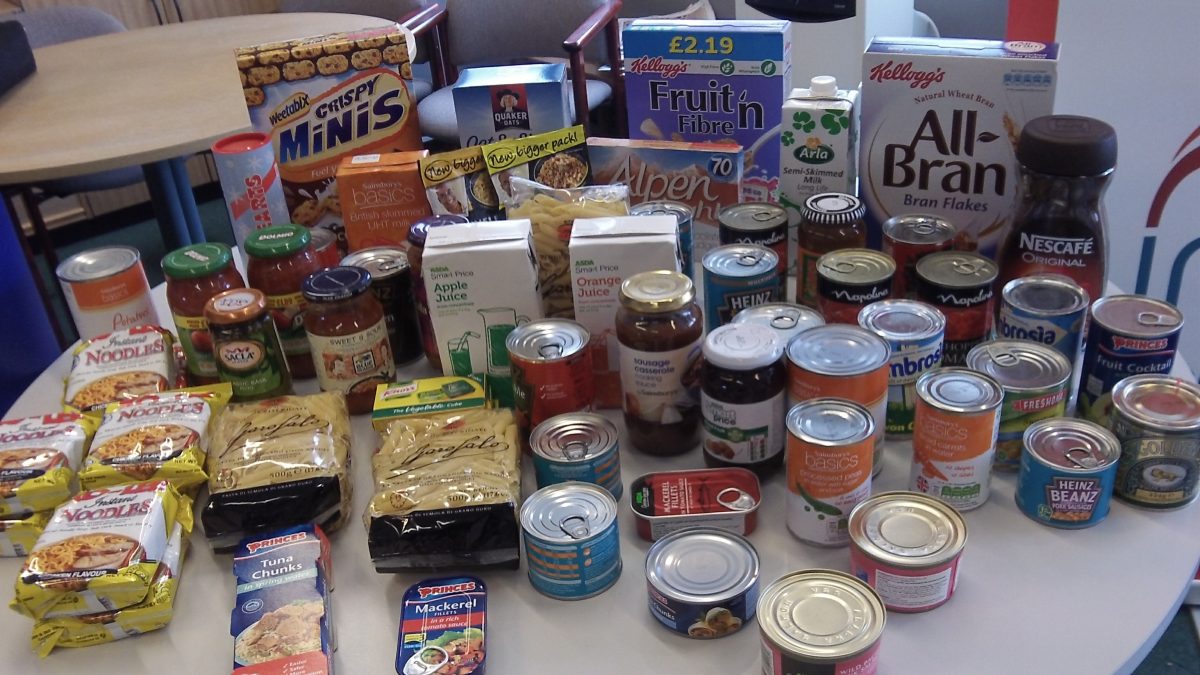Growing scourge of hunger
Food bank use in austerity Britain has skyrocketed under the coalition government – this is a fact widely reported in the media, as well as here on UniteLive.
Full Fact, an organisation that investigates numbers claims made by politicians and organisations, argued, however, that many news outlets had incorrectly reported that more than 1m people now used food banks, based on Trussell Trusts’ data.
“The Trussell Trust collect their data from the vouchers used by people referred to their food banks,” Full Fact noted. “If one voucher feeds a family of four people, that’s four instances. If the same family visit again next week, that’s another fourinstances. The Trussell Trust say that on average people needed two food bank vouchers annually, so the number of people using food banks is likely to be around half of the 1.1m figure.”
The Spectator and the Telegraph recently pounced on this evidence suggesting that the Trussell Trust—Britain’s main provider of emergency food provision—was deliberately exaggerating its statistics, concluding that food banks, an issue front and centre in this general election, are not as big a problem as we make them out to be.
This statistical hair-splitting, however, propagates an even more dangerous misconception – that the growing scourge of hunger under the coalition government’s watch is nothing more than a myth.
As the Guardian noted yesterday, there is no comprehensive data collected on food banks. Other countries’ governments, as the British Medical Journal states, formally track emergency food aid provision.
This government, however, would simply rather not know.
All we have to go on is the Trussell Trust’s data, which shows that the volume of food administered by its 445 food banks was enough to feed more than a million people, and that this volume has jumped by almost 20 per cent every year.
The data doesn’t account for the fact that there are an unknown number of food banks beyond Trussell Trusts’ purview, administered by churches and various local charities – there could be hundreds, even thousands more.
The data also doesn’t reveal the untold legions who, despite going hungry, feel too humiliated to resort to food banks – a problem that the Trust has identified in previous surveys. Nor does the data tell of the numbers who can’t access food banks because there aren’t any in their area.
What this suggests is that the problem of hunger in the UK – a problem often restricted to developing countries – is a much more severe problem than the Telegraph and Spectator may think, not less.
The confusion over growing food bank demand and its root causes, however, can easily be cleared up if food bank use were officially tracked. This suggestion was made by an MPs committee – a suggestion that the Tories summarily rejected.
Labour, on the other hand, has pledged a robust food policy that will ensure that growing food insecurity is tackled head on.
It was a pledge that shadow environment, food and rural affairs secretary Maria Eagle committed to only weeks ago.
“Labour will take a strategic and joined-up approach to food policy to ensure that everybody has the chance to eat safe, nutritious and affordable food, now and in the future,” she said. “Emergency food aid should remain just that – food banks can never be allowed to become a permanent feature of British society.”
Labour’s policy aims to attack the root causes of increased food bank use, including putting a stop to unjust benefits sanctions, addressing benefits delays and tackling low-pay by increasing the minimum wage to £8 an hour.
These root causes of skyrocketing food bank us, although repeatedly proven in various studies, including most recently by the BMJ, have been denied time and again by the coalition.
“The Tories’ attitude to the relentless rise in hunger in Britain speaks volumes for who they stand up for,” Eagle noted.
“They refuse to accept any responsibility for it, despite the fact their policies are making it worse.”
It was sentiment recently echoed by Unite general secretary Len McCluskey.
“How dare Iain Duncan Smith and David Cameron heartlessly brush off rising food bank use when all the evidence shows that their policies of benefit sanctions and austerity wages are why the hunger of so many now stalks our country,” he said.
“The UK is the sixth richest country on the planet so something has gone grotesquely wrong when so many people, in and out of work, have to turn to charity to feed their children,” McCluskey added. “It is no longer enough to say that we need to make hunger history – we need to make the government that supercharged this need history once and for all.”
 Like
Like Follow
Follow


